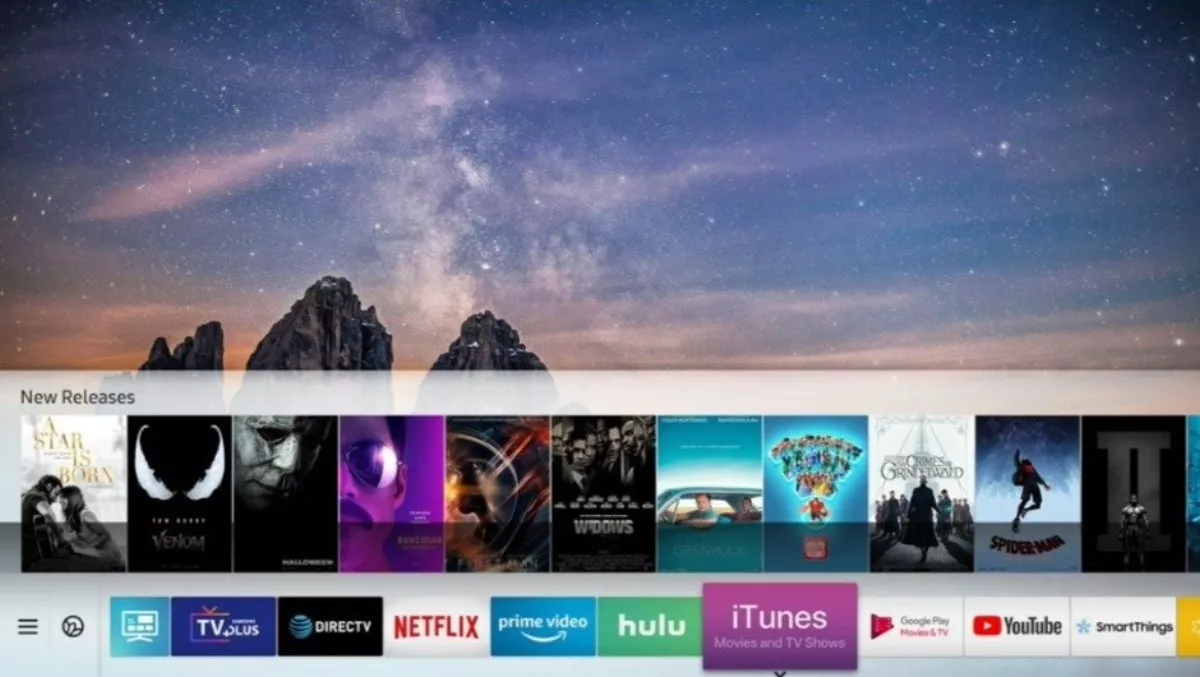
As Futuresource predicted in a report published before Christmas, Apple has made a big play in TV.
Six days into 2019 and Apple has formed a partnership with Samsung, which will see Samsung offer an iTunes Movies and TV Show app from this spring, in addition to AirPlay 2 support on all 2019 Samsung Smart TV models, and a firmware update providing access on 2018 models.
The announcement could have been easily missed within Samsung's headline CES press conference, with little emphasis placed on it.
This partnership is significant for a number of reasons as it is easily Apple's most high profile partnership to date and Samsung is its largest competitor in mobile devices, although it does not offer a major content service or a digital streamer.
Steve Jobs' mantra was to protect and promote a closed ecosystem, ultimately locking in users and driving its own hardware sales.
Whilst it has deviated from this slightly in the past by offering its software on other devices (iTunes/Motorola exclusive, Apple Music on Android devices are two of its most notable initiatives), this partnership is on another level altogether, highlighting how important reach is for Apple in the living room moving forwards, as iPhone sales slow.
Futuresource estimates that by the end of 2019, there will be over 60 million Samsung Smart TVs in use worldwide that can offer the iTunes app, which does not include any possible firmware upgrades to pre-2018 models, already dwarfing Apple TV's installed base.
The partnership also provides a strong bedrock for the anticipated launch of its premium streaming subscription service.
With deep pockets and impressive recruitment, Apple is set to join the new wave of premium subscription services in 2019, alongside Disney+, ATandT and now Universal.
Given its increasingly evident desire to establish itself in this space, it may even look to a major acquisition.
Furthermore, partnerships between Apple TV and key pay TV providers Canal+ and Charter Spectrum in 2018 demonstrate how Apple has started to position itself as a potential super-aggregator of streaming video services and content.
There were over 20 million Apple TVs in use at the end of 2018, but due to a comparatively higher price and aggressive competition, the streamer has never truly broken out to become a mass market product, particularly outside of the USA.
Futuresource has observed the increased importance of the TV for viewing of premium digital video in recent years, for streamed services such as Netflix, but also as a major driver of strong digital rental and sell-through growth in key markets such as the USA and UK.
Futuresource's Living with Digital consumer research reveals that 11% of US online respondents bought or rented movies or TV shows on iTunes Store in the last 6 months of 2018.
Only 27% of these said that the Apple TV was their preferred viewing device for this content, although 14% said that hooking their PC/Mac etc up to their TV was their preferred viewing device.
Combined, this is 41% who prefer to watch iTunes content on their TV, while for Amazon Video digital movie/TV show purchases and rental, 72% say that a TV screen is their preferred option, highlighting the need for wider TV reach for the iTunes Store.
The inclusion of iTunes Store in the Movies Anywhere app/service in the USA (launched late 2017) is effectively a back-door to viewing iTunes content on a Smart TV, its launch was perhaps a nod of what was to come.
The iTunes Store/Samsung tie-up is also a significant boost to the 4K UHD movie sector. Apple's one SKU strategy on sell-through titles, whereby 4K UHD resolution is offered for no additional cost, means that Apple iTunes users can now enjoy a true UHD experience on many new and previously purchased movie titles.
The key takeaway from the announcement is that Apple is embarking on a major shift in strategy as it looks to diversify its revenue streams, with an increasingly open mind to collaboration key to executing this strategy.
